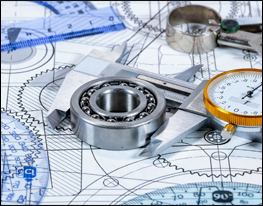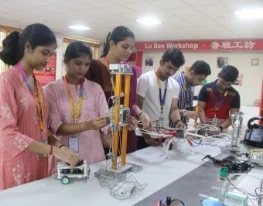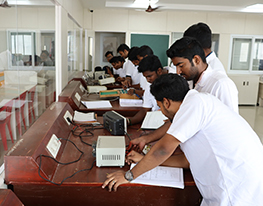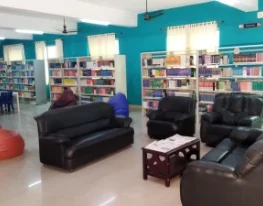About the Centre
The Centre for Vibration Testing and Analysis (CVTA) is an autonomous research and testing facility dedicated to the investigation, simulation, and mitigation of vibrations in mechanical systems and structural elements. Established to bridge the gap between academic knowledge and industrial application, the CVTA operates at the intersection of mechanical dynamics, condition monitoring, and structural health evaluation.
Our expertise spans vibration analysis, modal testing, noise–vibration–harshness (NVH) studies, and machinery diagnostics, addressing diverse sectors such as automotive, aerospace, civil infrastructure, and manufacturing
A key feature of the Centre is its emphasis on experiential learning. From the early semesters, students participate in hands-on vibration testing and simulation exercises using state-of-the-art tools, enhancing both analytical skills and industry readiness. The CVTA regularly organizes workshops, training programs, and technical seminars in collaboration with leading academic and industrial institutions, including IITs, NITs, and R&D organizations.
Through cutting-edge research, robust industry-academia partnerships, and continuous technology upgrades, the CVTA contributes significantly to advancements in vibration engineering and predictive maintenance.
Vision
-
To establish the CVTA as a national Centre in advanced vibration analysis, structural dynamics, and predictive maintenance, integrating computational and experimental methods to deliver industry-focused solutions in NVH, fatigue life estimation, and machinery diagnostics.
-
By leveraging state-of-the-art research, experiential training, and strategic collaborations, the Centre aims to drive the digital transformation of condition monitoring and develop the next generation of vibration engineering professionals.
Mission
-
Conduct state-of-the-art research in vibration testing, structural integrity assessment, and dynamic response characterization.
-
Develop and execute industry-academic projects in areas such as machine health monitoring, imbalance detection, and failure prevention.
-
Train students and researchers in advanced tools and techniques, including FFT analyzers, DAQ systems, and structural dynamics simulation software.
-
Facilitate high-impact academic publications, patent filings, and technology transfer through advanced research and testing.
-
Support vibration-based product validation for industries including automotive, aerospace, electronics, and infrastructure.
Areas of Research
- Modal and Dynamic Analysis
- Experimental and operational modal analysis for natural frequency, damping, and mode shape identification.
- Utilization of shaker-based testing and laser vibrometry for validating structural dynamic models.
- Rotating Machinery Diagnostics
- Detection of imbalance, misalignment, and bearing faults using vibration spectrum analysis and envelope detection methods.
- Applications include motors, turbines, and gearboxes.
- Noise and Vibration Harshness (NVH)
- NVH characterization for automotive, appliance, and aerospace components.
- Techniques include acoustic mapping, sound quality analysis, and structural–acoustic coupling simulations.
- Fatigue Life Prediction
- Crack growth analysis using fracture mechanics approaches, such as Paris’ Law, to predict structural failure.
- Incorporates material properties, stress intensity factors, and loading conditions.
- Finite Element Simulation
- FEA models for transient vibration response, harmonic analysis, and random excitation.
- Experimental validation using accelerometer data and modal testing facilities.
Equipment and Facilities
- Electro-dynamic Shakers (low- and high-frequency ranges)
- Modal Impact Hammers with force sensors
- Accelerometers – uniaxial and triaxial types
- Multi-channel Vibration Data Acquisition Systems
- FFT Analyzers and signal processing software
- Digital Oscilloscopes and real-time analyzers

















 Research
Research
